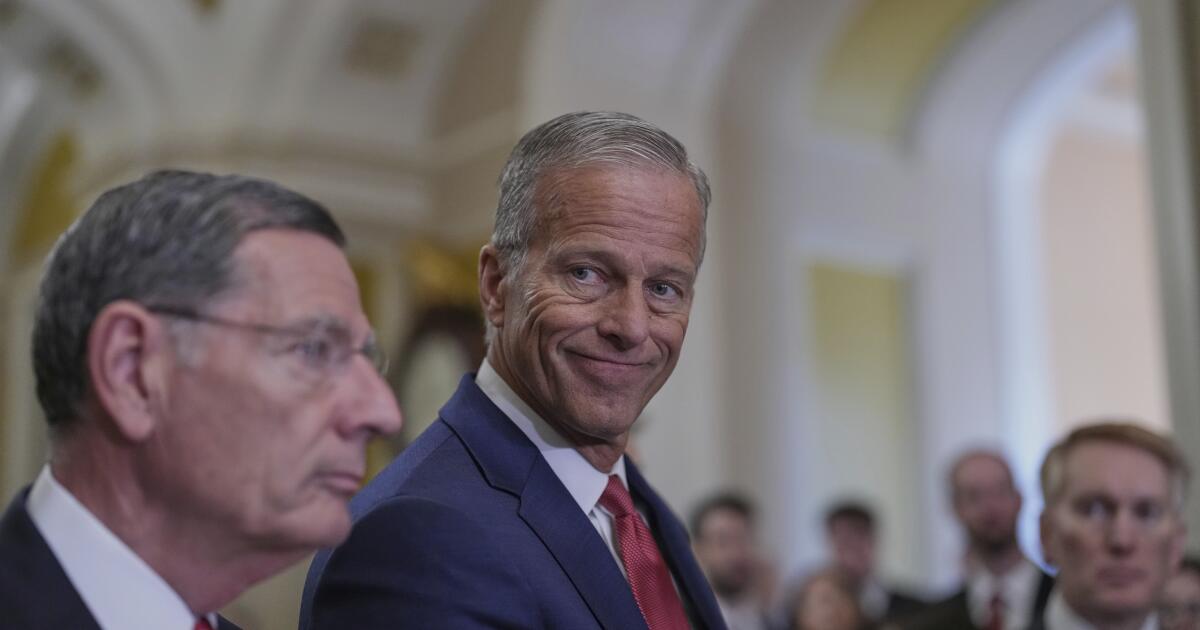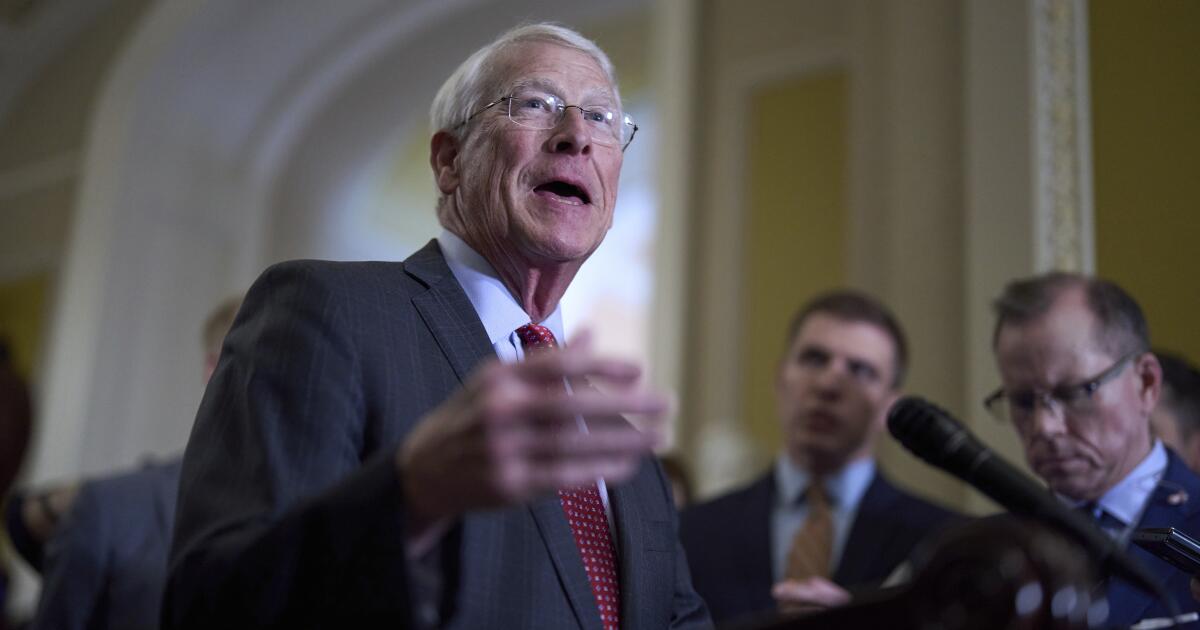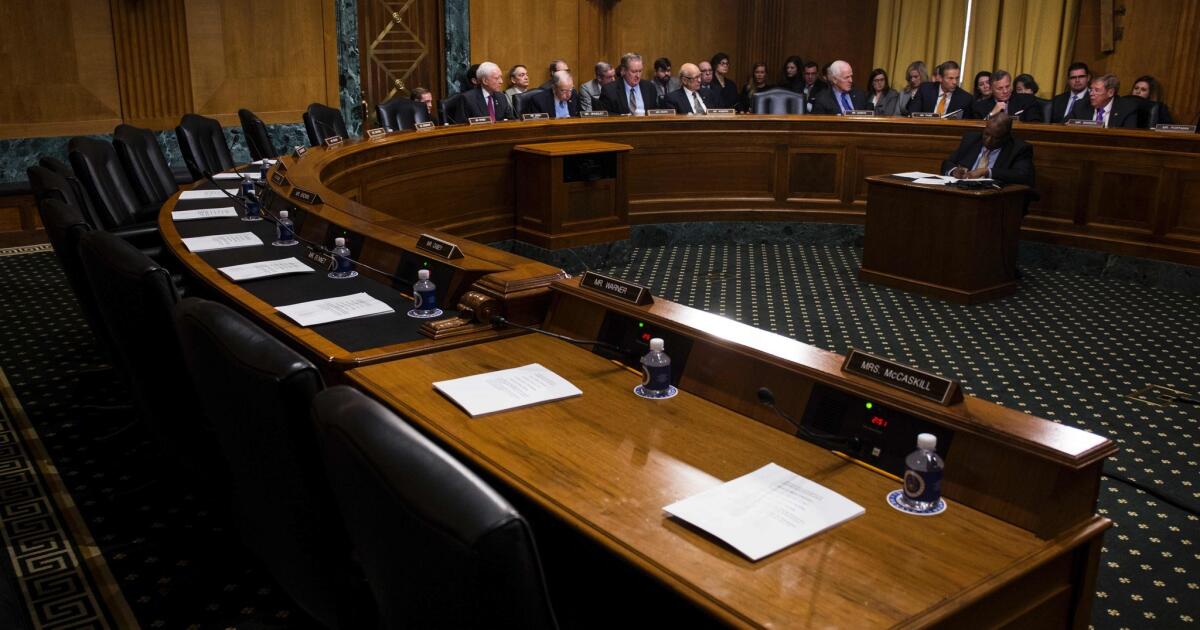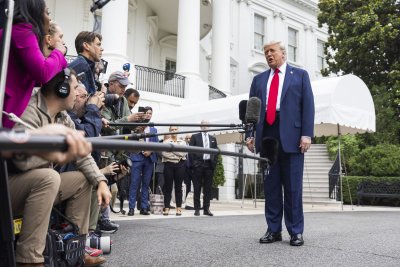Reporting from Washington — For those outside Washington, government institutions seem equally dysfunctional. Inside the Beltway, however, the Senate occupies a somewhat special place.
The upper chamber is often revered – especially by its own members — as a more thoughtful, deliberate and collaborative body, where respect for minority viewpoints is baked into cherished rules and precedents.
But one by one, those long-standing traditions that have served as a check against extreme legislation or appointments are being tossed aside amid growing partisanship and a closely divided government.
Rather than nudging senators to compromise, the rules are now a being used in a procedural arms race that threatens to erode the very culture and practice that made the Senate different than the majority-rules House.
“This is the latest manifestation of a changing and declining Senate,” said Thomas Mann, a congressional scholar at the Brookings Institution and the UC Berkeley Institute of Governmental Studies.
Trump made promises to blue-collar voters. Democrats plan to make sure he follows through »
“The polarization between the parties and the intensity of sentiment outside the Senate has already led to changes in norms and practices,” he said. “Our system is not well structured to operate in a period of intense polarization.”
The latest example came Wednesday when GOP lawmakers took the extraordinary step of changing committee rules to advance two of President Trump’s Cabinet nominees without any Democrats in attendance.
Democrats, revealing their own willingness to defy Senate niceties, had boycotted the votes on Steven Mnuchin as Treasury secretary and Rep. Tom Price as head of Health and Human Services as they sought more answers on the nominees’ records.
Now Trump would like to see other Senate rules scrapped to the ensure approval of his Supreme Court nominee, Neil M. Gorsuch, whom Democrats had vowed to block even before his name was revealed.
Democrats are still stinging over Senate Majority Leader Mitch McConnell’s refusal for most of last year to grant a vote for President Obama’s nominee, Judge Merrick Garland, to fill the seat of the late Justice Antonin Scalia.
Supreme Court nominations have rarely been subjected to filibusters, but Democrats are talking about taking such a move against Gorsuch. In response, Republicans are considering changing Senate rules so only 51 votes are needed to end the delaying tactic, rather than the current 60. The move is seen as so severe it’s been dubbed the “nuclear option.”
“I would say, ‘If you can, Mitch, go nuclear,’ because that would be an absolute shame if a man of this quality was caught up in the web,” Trump said Wednesday.
Democrats opened the door themselves in 2013 when they used the nuclear option to push through several of Obama’s judicial and executive nominations, which Republicans had been filibustering.
The final frontier in this procedural war could be ending the use of filibusters on ordinary legislation. That would means that bills — which typically require 60 votes to advance in the Senate — could be moved with a 51-vote simple majority. With Republicans currently holding 52 seats, it would relegate Democrats to bystanders in the Senate.
“What is the Senate if that’s gone?” asked one Senate aide. “It’s just the House.”
The Senate has long been a frustrating place. Its slow pace and cumbersome rules are nothing like the more rambunctious House, where the majority can quickly pass a legislative agenda.
But the founders designed the bicameral system with that unique difference — one chamber to swiftly answer the will of the people, the other for a more measured second look before sending bills on to the White House.
Only in the 20th century did senators create an option for ending a filibuster as a way to cut off prolonged debate.
It all sounds pretty archaic to an increasingly frustrated public that is reeling in an intensely partisan environment.
Trump’s election has only accelerated the pressure to end the civilities of the past. On the Republican side, tea party activists pressured Republicans to jam Obama’s agenda, even if that meant shutting down the government.
Now Democratic voters are marching in the streets to stop Trump, pressuring their party leaders to confront just as aggressively what many fear is a dangerous agenda.
“What we’re seeing now is that the base is more motivated than any of us have ever seen,” said Mark Stanley, spokesman for Demand Progress, a 2-million-member progressive group whose activists will be calling and emailing Democratic senators to oppose Gorsuch. It recently turned out 3,000 people at a Democratic senator’s town hall meeting in Rhode Island to protest his vote for Trump’s CIA director nominee.
“Especially in these unprecedented times we’re in, Democrats have to stick by their principles and do what their constituents are really asking for,” Stanley said.
Though both parties have contributed to the gridlock in the Senate, it was McConnell’s willingness to utilize the filibuster as an ordinary weapon in the Obama era — rather than the occasional cudgel — that is largely seen as having fueled today’s standoff.
McConnell has made it clear that Trump’s Supreme Court nominee will be confirmed even if Democrats mount a filibuster — all but declaring he will use the nuclear option to do so.
Trump and the GOP are charging forward with Obamacare repeal, but few are eager to follow »
Such a move would probably poison legislative operations in the Senate for the foreseeable future.
The prospect has so alarmed some Democrats that they may be willing to hold their nose and vote for Gorsuch to preserve the filibuster. Others are not so sure.
Sen. Angus King, an independent from Maine who caucuses with Democrats, acknowledges that when he arrived in the Senate in 2013, he, too, was so quickly frustrated by the obstruction that he was willing to consider rules changes.
But the former governor vividly remembers a private meeting of the Democratic caucus when one of the older senators advised the newer arrivals about the importance of the Senate as the cooling body and urged them to think about the long-term ramifications of their actions.
“One of the things that surprise me about this place is that people do things and they expect it’s not going to have results four or five years from now,” King said. “I’ve come to realize the 60-vote majority requires some kind of bipartisan support which ultimately makes legislation better.”
[email protected]
@LisaMascaro
ALSO
Despite talk of GOP unity, Trump’s programs face fight from Republican budget hawks
‘Believe me’: People say Trump’s language is affecting political discourse ‘bigly’
Trump’s rise draws white supremacists into political mainstream: ‘I am winning,’ says David Duke
More coverage of Congress
Live coverage from the campaign trail






